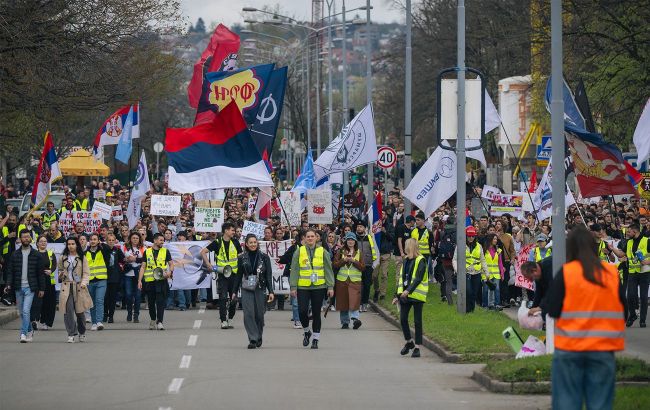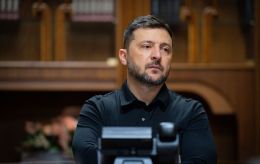Belgrade protests intensify: Police clash with demonstrators in Serbia's capital
 Anti-government protests continue in Serbia (Illustrative photo: Getty Images)
Anti-government protests continue in Serbia (Illustrative photo: Getty Images)
Anti-government protests continue in Serbia. In the capital, Belgrade, and several other cities, police special forces violently dispersed demonstrators, reports Al Jazeera.
Protests in Serbia intensified on Tuesday, August 12. Opponents and supporters of the government clashed after more than nine months of continuous demonstrations against populist President Aleksandar Vučić.
The clashes began in Vrbas, northwest of the capital Belgrade, where police separated the two groups near the local office of the ruling Serbian Progressive Party.
Police Commissioner Dragan Vasiljevic told state broadcaster RTS that the protesters came to attack supporters of the ruling party near its office. Several people were detained by authorities.
On Wednesday evening, supporters of the president and anti-government demonstrators hurled flares and other objects at each other in the northern city of Novi Sad, prompting police intervention.
Thousands gathered for protests in other parts of the country, mainly near local offices of Vučić’s party.
Police dispersed crowds in Kraljevo, while protests also took place in the southern city of Niš and the central cities of Čačak and Kragujevac.
In Belgrade, police broke up anti-government demonstrators in one district, using tear gas to disperse the crowd.
Serbian President Aleksandar Vučić stated that over 60 protesters and 16 police officers were injured during the demonstrations on Thursday morning.
Serbian Interior Minister Ivica Dačić called for a restoration of law and order, while President Vučić labeled anti-government demonstrators as bandits, a typical government tactic to discredit opponents.
What preceded this
Student protests in Serbia began in November after a railway station canopy collapsed in the northern city of Novi Sad, killing 16 people. The tragedy sparked widespread accusations of corruption in state infrastructure projects.
President Vučić, other government officials, and pro-government media repeatedly referred to the protesters as terrorists, even though the demonstrations were largely peaceful.
Led by university students, the protesters demand that Vučić call early parliamentary elections, but he has refused.
In January, Vučić did not rule out early elections, though later he attached a condition.
Last week, a Serbian court arrested 13 people suspected in connection with the Novi Sad station canopy collapse, including two former ministers.

